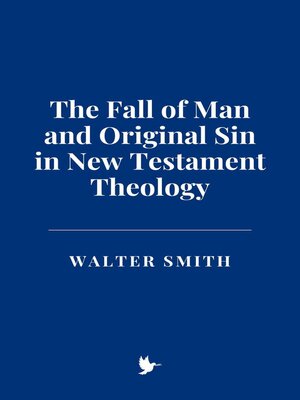
Sign up to save your library
With an OverDrive account, you can save your favorite libraries for at-a-glance information about availability. Find out more about OverDrive accounts.
Find this title in Libby, the library reading app by OverDrive.



Search for a digital library with this title
Title found at these libraries:
| Library Name | Distance |
|---|---|
| Loading... |
This book explores the Fall and Original Sin within the framework of New Testament theology, tracing its origins, implications, and resolution through Christ's redemptive work. Beginning with an analysis of the Genesis account, the study examines how sin, death, and separation from God became defining aspects of the human condition. The New Testament, particularly the writings of Paul, the Gospels, and the Book of Revelation, presents the Second Adam (Christ) as the ultimate answer to the spiritual and cosmic consequences of the Fall.
Key theological debates are examined, including justification by faith vs. works, predestination and free will, the problem of evil, and the role of the Church as the redeemed community. The book delves into the writings of Church Fathers such as Augustine, Irenaeus, and Athanasius, medieval scholastics like Thomas Aquinas, and the Reformation theologians Luther and Calvin, demonstrating the historical evolution of Christian thought on sin and grace.
A major focus is placed on the concept of New Creation, where the reversal of the Fall reaches its culmination. The final chapters highlight the New Testament's eschatological hope, particularly in Romans 8 and Revelation 21-22, where creation is ultimately renewed, and humanity is restored to eternal communion with God.
This study synthesizes biblical exegesis, historical theology, and contemporary interpretations, offering a comprehensive examination of how Christianity understands the Fall not as an end but as the starting point for divine redemption and the full realization of God's Kingdom.







